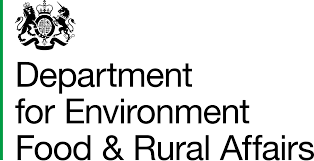PRESS RELEASE : ‘Good’ now minimum standard Ofsted expects from schools [September 2012]
The press release issued by the Department for Education on 3 September 2012.
The revised inspection arrangements follow a comprehensive consultation ‘A Good Education For All’ which received more than five thousand responses from teachers, headteachers, parents, carers and governors. Respondees agreed that children deserve the best education possible and as a result Ofsted has introduced inspection arrangements that challenge the education system to do better.
Ofsted is raising the bar for school inspections. This is a real challenge for schools but it is also a challenge for Ofsted. To meet this challenge Ofsted is making a number of structural and organisational changes, putting more senior inspectors in the field to promote improvement through inspection and to ensure the right amount of time is spent giving support to schools when they need it.
Launching the new inspection framework Her Majesty’s Chief Inspector, Sir Michael Wilshaw, said:
I believe all children, regardless of where they live or what their parents can afford for them, have the right to a good education and that belief is at the heart of our work at Ofsted. From today, the school inspection arrangements will further challenge schools to ensure a good education is provided for all our children.
I make no apology for introducing an inspection framework that raises expectations and focuses on the importance of teaching. The new short-notice inspections allow inspectors to see schools as they really are. Schools judged ‘requires improvement’ will receive strong support from Ofsted to help them get to ‘good’.
We know inspections are crucial in driving better performance. Showing the need for improvement is often the spur that brings about change. I want Ofsted to be giving the right support to the schools that need it. Her Majesty’s Inspectors will spend more time doing inspection and improvement work locally and they will be supported by eight new regional directors, each responsible for learning and improvement in their respective areas.
From September 2012 the key changes to the inspection framework for schools are:
- to be judged ‘outstanding’, a school must have outstanding teaching. Not every lesson needs to be outstanding but over time schools must show outstanding teaching is helping pupils make excellent progress
- from today a new grade ‘requires improvement’ replaces the ‘satisfactory’ grade. Satisfactory should never have been more than a staging post on a school’s journey towards providing a good or outstanding education for all children
- schools judged satisfactory at the end of August 2012 will have a clean slate before being inspected by the end of the academic year 2013/14, but schools that have already been judged inadequate and given a notice to improve will be treated as schools that have ‘serious weaknesses’
- schools will be notified of an inspection by telephone the afternoon before the inspection starts. This means inspectors will see schools as they really are whilst giving headteachers and governors the opportunity to be present at the inspection
- Ofsted announced the changes to the inspection of schools, further education and skills and initial teacher training on 30 May.
- Thanks to the dedication of teachers and headteachers across England, most children go to a school that Ofsted has found good or outstanding.*
| Outstanding (%) | Good (%) | Total (%) | |
|---|---|---|---|
| North East | 21 | 51 | 72 |
| North West | 24 | 50 | 74 |
| Yorkshire and the Humber | 18 | 49 | 67 |
| East Midlands | 17 | 49 | 66 |
| West Midlands | 18 | 47 | 65 |
| East of England | 20 | 47 | 67 |
| London | 28 | 48 | 76 |
| South East | 21 | 47 | 68 |
| South West | 21 | 51 | 72 |
| Outstanding (%) | Good (%) | TOTAL (%) | |
|---|---|---|---|
| Birmingham | 23 | 45 | 68 |
| Bolton | 21 | 49 | 70 |
| Bristol | 21 | 38 | 59 |
| Coventry | 9 | 43 | 52 |
| Derby | 13 | 39 | 52 |
| Lancashire | 21 | 50 | 71 |
| Leicester | 13 | 48 | 61 |
| Liverpool | 24 | 53 | 77 |
| Manchester | 25 | 41 | 66 |
| Newcastle Upon Tyne | 22 | 48 | 70 |
| Norfolk | 12 | 49 | 61 |
| Nottingham | 18 | 51 | 69 |
| Oxfordshire | 15 | 48 | 63 |
| Reading | 23 | 37 | 60 |
| Sheffield | 19 | 47 | 66 |
| Stoke-on-trent | 22 | 41 | 63 |
| Suffolk | 20 | 47 | 67 |
| Sunderland | 14 | 46 | 60 |
| Warrington | 31 | 40 | 71 |
| Wolverhampton | 17 | 44 | 61 |
*Most recent inspection as at 31 March 2012. The most recent school inspection outcome statistics can be found on the Ofsted website.
- The Office for Standards in Education, Children’s Services and Skills (Ofsted) regulates and inspects to achieve excellence in the care of children and young people, and in education and skills for learners of all ages. It regulates and inspects childcare and children’s social care, and inspects the Children and Family Court Advisory Support Service (Cafcass), schools, colleges, initial teacher training, work-based learning and skills training, adult and community learning, and education and training in prisons and other secure establishments. It assesses council children’s services, and inspects services for looked after children, safeguarding and child protection.



